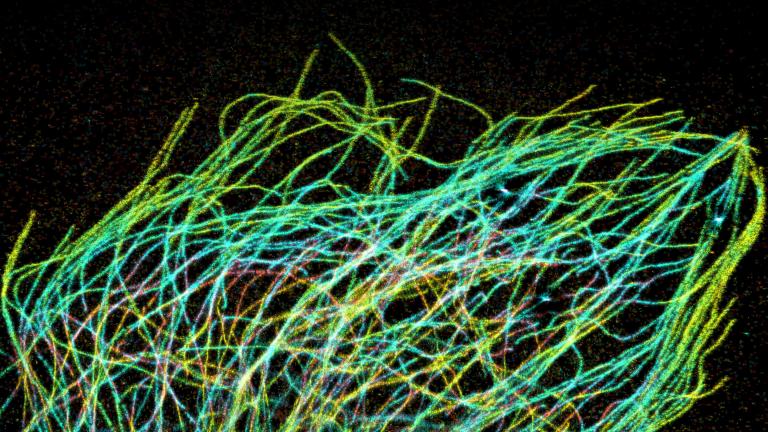All News

|
Research Feature
Joncita Todechine, a mother of four who lives on the Navajo Nation, knows all too well what can trigger asthma symptoms in her daughter Ashley. But she didn’t always. She recalls a time in 2013, living in Phoenix and attending medical assistant school, when she rushed her then-three-year-old to the Indian Medical Center. “She was really sick,”...
Showing 10 out of 203 results

|
Research Feature
National Institutes of Health- (NIH) supported research is shedding light on how sleep and lack of sleep affect the human body. The NIH and its partners will continue to work together to advance sleep research. Download a jpg file of the infographic.

|
Research Feature
Scientists have been using fluorescent proteins, ultraviolet light and optical microscopes since the 1990s to tag and observe living cells. This groundbreaking technique, based on a naturally occurring protein found in bioluminescent jellyfish, garnered a Nobel Prize in Chemistry . Subsequent...

|
Research Feature
“In the face of adversity, you have to have faith that you can be committed to succeed,” said Gary H. Gibbons, M.D., director of the National Heart, Lung, and Blood Institute (NHLBI) to a group of 12 students from Tougaloo College in Jackson, Mississippi. Dr. Gibbons welcomed the students, who...

|
Research Feature
Dr. Stewart Levine, Senior Investigator in the NHLBI Laboratory of Asthma and Lung Inflammation, discovered his love of science and medicine in high school. From there, he went on to study biology as an undergraduate student, where he had his first opportunity to participate in laboratory...

|
Research Feature
When it comes to the effects of emotional stress on the heart, young men and women may not be created equal. Understanding the role of emotional factors—in particular psychological stress—on heart disease risk is a professional passion for longtime NHLBI grantee, Dr. Viola Vaccarino, a leader...

|
Research Feature
Dr. Gbenga Ogedegbe from the New York University School of Medicine is sitting in his parked car in the garage of his home in New Jersey. It is 5:30 p.m. on a Thursday evening and he is eager to join his wife and three sons for dinner. But first, he picks up his cell phone to return a call from...

Credit:
Pakorn Kanchanawong, National University of Singap...
|
Research Feature
What at first glance may seem like a child’s drawing is instead an image of dividing cells. Taken by Earl Stadtman Investigator Dr. Nasser Rusan from NHLBI’s Laboratory of Molecular Machines and Tissue Architecture, the image of a pig cell in the process of dividing is one of 46 scientific...

|
Research Feature
Scientific discoveries are essential for improving patient care. Yet, according to a paper in the Journal of the American Medical Association , it takes an average of 17 years for only 14 percent of new scientific discoveries to enter day-to-day clinical practice. In addition, Americans receive...

|
Research Feature
The ethnic groups that combine to form the rich cultural tapestry of the Hispanic/Latino community reflect a diverse array of customs and practices. In the same way that various groups feature distinct dance styles, such as the merengue and the mambo, each group also faces different health...

|
Research Feature
During the past 30 years, the prevalence of childhood obesity has more than doubled among children ages 2-5 and has almost tripled among children ages 6-11 and adolescents ages 12-19. Approximately 12 million, or 17 percent, of U.S. children and adolescents are now considered obese. And...

